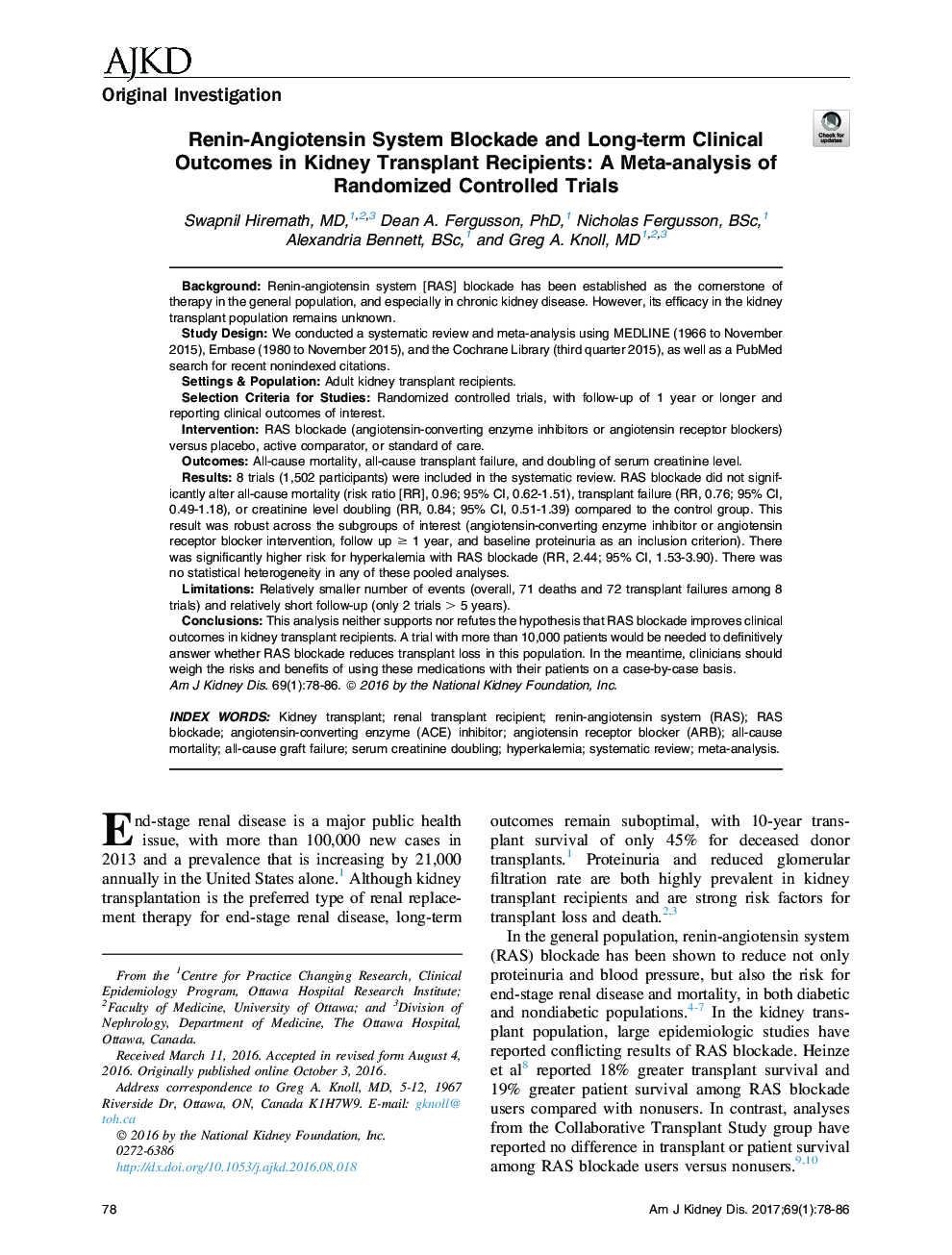| کد مقاله | کد نشریه | سال انتشار | مقاله انگلیسی | نسخه تمام متن |
|---|---|---|---|---|
| 5685789 | 1598232 | 2017 | 9 صفحه PDF | دانلود رایگان |
BackgroundRenin-angiotensin system [RAS] blockade has been established as the cornerstone of therapy in the general population, and especially in chronic kidney disease. However, its efficacy in the kidney transplant population remains unknown.Study DesignWe conducted a systematic review and meta-analysis using MEDLINE (1966 to November 2015), Embase (1980 to November 2015), and the Cochrane Library (third quarter 2015), as well as a PubMed search for recent nonindexed citations.Settings & PopulationAdult kidney transplant recipients.Selection Criteria for StudiesRandomized controlled trials, with follow-up of 1 year or longer and reporting clinical outcomes of interest.InterventionRAS blockade (angiotensin-converting enzyme inhibitors or angiotensin receptor blockers) versus placebo, active comparator, or standard of care.OutcomesAll-cause mortality, all-cause transplant failure, and doubling of serum creatinine level.Results8 trials (1,502 participants) were included in the systematic review. RAS blockade did not significantly alter all-cause mortality (risk ratio [RR], 0.96; 95% CI, 0.62-1.51), transplant failure (RR, 0.76; 95% CI, 0.49-1.18), or creatinine level doubling (RR, 0.84; 95% CI, 0.51-1.39) compared to the control group. This result was robust across the subgroups of interest (angiotensin-converting enzyme inhibitor or angiotensin receptor blocker intervention, follow up ⥠1 year, and baseline proteinuria as an inclusion criterion). There was significantly higher risk for hyperkalemia with RAS blockade (RR, 2.44; 95% CI, 1.53-3.90). There was no statistical heterogeneity in any of these pooled analyses.LimitationsRelatively smaller number of events (overall, 71 deaths and 72 transplant failures among 8 trials) and relatively short follow-up (only 2 trials > 5 years).ConclusionsThis analysis neither supports nor refutes the hypothesis that RAS blockade improves clinical outcomes in kidney transplant recipients. A trial with more than 10,000 patients would be needed to definitively answer whether RAS blockade reduces transplant loss in this population. In the meantime, clinicians should weigh the risks and benefits of using these medications with their patients on a case-by-case basis.
Journal: American Journal of Kidney Diseases - Volume 69, Issue 1, January 2017, Pages 78-86
